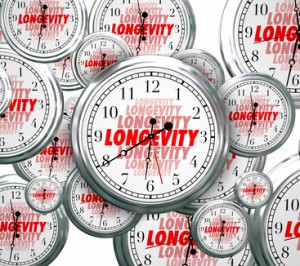Life expectancy around the world has risen by a whopping six years since 1990, according to a global survey released Friday.
As the CBC reports here, these longer lifetimes are occurring in both rich countries and poor ones, although for different reasons.
In the affluent west, it’s driven by falling death rates from the two big scourges of cancer and heart disease. In poorer countries, increased life expectancy is the result of progress in fighting tuberculosis, malaria and diarrhea. The tragic exception, however, is southern sub-Saharan Africa, where life expectancy has actually fallen five years because of rising deaths from HIV/AIDS.
The 2013 Global Burden of Disease Study was published in the Lancet medical journal.
For those born in 2012, life expectancy in Canada is now 80 for males and 84 for women, according to this report in May of 2014.
The Hub’s Take
None of this comes as a great surprise to us here at the Financial Independence Hub. This long-established trend is why one of our six major blog categories is Aging & Longevity, which is where the post you are now reading is housed. Read earlier posts in this section, notably those of Mark Venning, and you will see that we believe in a few implications of extended longevity.
One is consistent with this entire web site, which is devoted NOT to Retirement but to Financial Independence (aka Findependence). If you’re not sure about the difference, read our introductory announcement on this site’s front page, or the e-books also prominently displayed in this site.
The second implication is that we should be planning NOT for Retirement but for Longevity. The recent post by Doug Dahmer identifies the “fatal flaw” in most retirement plans, which is (you guessed it) rising Life Expectancy. In his piece you can also find a link to a Longevity Calculator which will take your individual situation and spit out a probable age you can expect to live to.
How to lower your Life Expectancy
Of course, since it’s mostly a matter of common sense, you may not even need to use such a calculator. The more bad habits you have, the lower your life expectancy. So if you smoke, drink to excess, eat junk food, never exercise, indulge in illicit drugs, speed and are unmarried, you probably don’t need to fret too much about extended longevity.
On the other hand, the more you eat properly and exercise, are married and refrain from most of the above harmful activities, the more you can expect to participate in this steady upwards march of Life Expectancy. If so, you should consider working longer or if you dislike your present occupation, think of a way to change careers.
If you’re just fed up with “working for the man,” consider the possibility of starting your own business. If you’re going to live longer than you once supposed, you no longer have to use the excuse of being too old to start. Another of the Hub’s six blog categories is Business Ownership.
More longevity breakthroughs to come, especially for the young
Personally, I believe we’re not yet done with breakthroughs in medical science and extended longevity. Google the word “telomere” and you may find we’re close to extending longevity even more. Maybe not so much for aging baby boomers but I think millennials should definitely be preparing for very long lives indeed, which is why we’ve written elsewhere on the Hub that millennials should forget about the term Retirement, and instead embrace the far more accessible and doable term Financial Independence.


